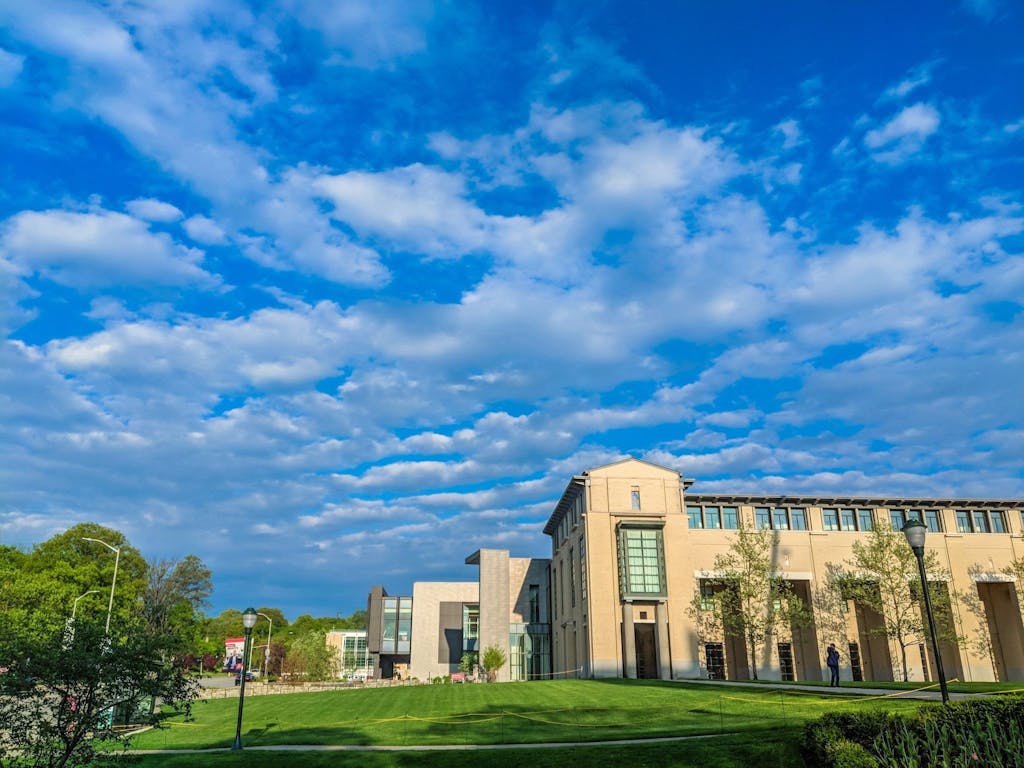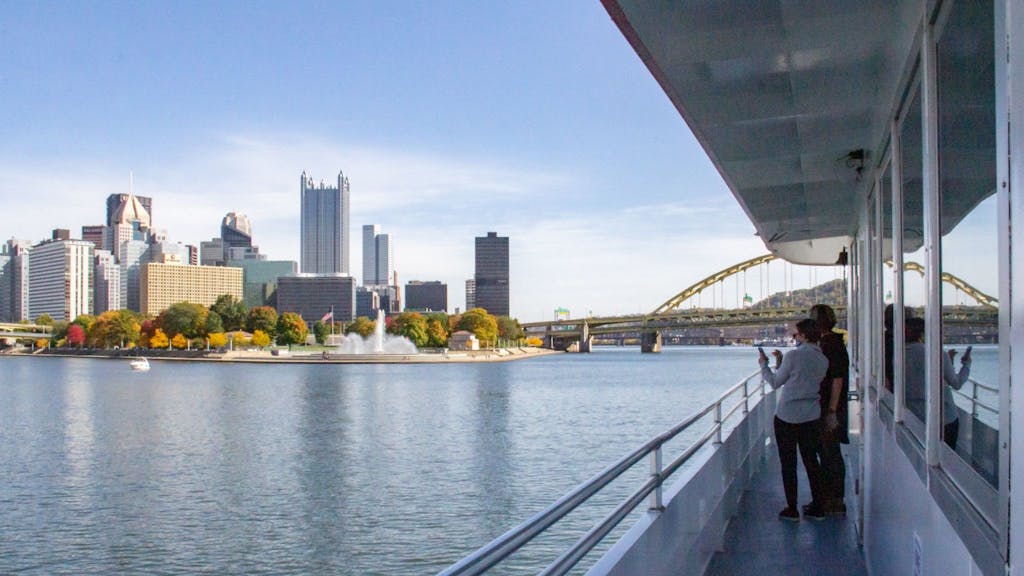
photograph: Vidar Nordli -Mathisen
people throughout the nation are using the Sustainable progress goals as a road map to recuperate greater by turning these worldwide ambitions into native movement.
In Pittsburgh, that means reimagining the metropolis’s industrial roots to spark social change and financial transformation by world-class evaluation, collaboration, and innovation.
these days, Joylette Portlock doesn’t should outline “sustainability” to most people.
however when the nonprofit she oversees, Sustainable Pittsburgh, first launched almost 1 / 4-century in the past, the phrase hadn’t but show to be a household time period.
Since 1998, the group has served a ten-county area in southwestern Pennsylvania, collectively with Pittsburgh, the steel metropolis. however not like completely different nongovernmental organizations (NGOs) with narrower missions, Sustainable Pittsburgh is unique in its dedication to sustainability inside the broadest sense — from entry to wash air and water to public transportation and extreme quality jobs — by its deal with connecting people throughout the group.
The group’s full, strategies-stage strategy turned rather extra very important with the outbreak of COVID-19, which altered how almost all people on the planet works, lives, and even eats. For in all likelihood the most weak inside the southwestern Pennsylvania area, the pandemic wreaked disproportionate havoc — and revealed simply how interconnected every part is.
“you’d possibly have the flexibility to’t focus on local climate with out talking about training, with out talking with reference to the financial system, with out talking about equity,” Joylette mentioned all by a dialogue in summer season 2020 with the World Affairs Council of Pittsburgh. “this stuff are all tied collectively. … If we truly want to see these modifications, we have gotten to start creating new and greater and deeper collaboration.”
This interconnected lens epitomizes the Sustainable progress goals (SDGs), a set of 17 common goals which have united the Pittsburgh group — and the world — as a blueprint for constructing a greater future for all.
placing meals ON THE desk
one in every of COVID-19’s cruelest ironies is that so a lot of the identical people pushed into hunger earned their residing in meals service. In Pittsburgh, as elsewhere, the worldwide shutdown in spring 2020 led to massive financial losses for the metropolis’s residents — significantly these working in eating places. The pandemic uncovered the vulnerability of these working minimal-wage jobs as servers, cooks, and supply drivers. in fact, Pennsylvania lawmakers rolled out a statewide $a hundred forty five million restoration program particularly for the hospitality enterprise as a end result of the sector was amongst the numerous hardest hit. With much less demand from native eating places, farmers and meals producers inside the area additionally suffered.
in the meantime, as schools and companies shuttered throughout southwestern Pennsylvania, meals insecurity, particularly amongst college students who relied on free school breakfasts and lunches, rose 31% over 2019 ranges, in response to the state’s division of Human providers.
In response, Joylette and her staff at Sustainable Pittsburgh, in collaboration with CRAFT at Chatham college, launched a singular decision acknowledged as Allegheny Eats to deal with these interconnected factors. By procuring for a meal equipment by this method, Pittsburgh residents not solely helped current free meals to service enterprise professionals affected by the pandemic, in addition they supported native farmers and meals producers whereas lowering meals waste throughout the area. The pilot program ran for six months and delivered 14,000 meals to staff inside the world’s service enterprise.
And Allegheny Eats was a group effort. The meals was partially sourced from 15 native farms and meals producers and ready by six native eating places. the metropolis of Pittsburgh, CRAFT at Chatham college, and 412 meals Rescue, a neighborhood nonprofit that redistributes surplus meals from eating places and grocery shops to hungry households, had been amongst 10 native companions that helped launch the initiative.
“Our work sits on the intersection of equity, environmental stewardship, and financial progress,” Joylette says. “And as you’d possibly have the flexibility to think about over the previous 12 months and a half, this mission has solely show to be extra very important and important.”
“Our work sits on the intersection of equity, environmental stewardship, and financial progress, this mission has solely show to be extra very important and important.”
Joylette Portrlock
authorities Director, Sustainable Pittsburgh
Joylette’s work entails connecting with Pittsburghers like Leah Lizarondo, the co-founding father of 412 meals Rescue, a nod to the metropolis’s space code.
Leah’s group, which salvages and redistributes surplus meals throughout the Western Pennsylvania area, makes use of a expertise platform and cell app acknowledged as meals Rescue Hero to join 800 meals retailers, 600 nonprofit companions, and 12,000 volunteers. The end result? greater than 20 million kilos of meals saved, the equal of 18 million meals and eleven million kilos of carbon dioxide emissions mitigated from native landfills since 412 meals Rescue’s launch in 2015.
The meals Rescue platform has already been expanded to Cleveland, Philadelphia, San Francisco, la, and completely different U.S. cities. Leah’s prolonged-time period purpose is rising to a hundred cities worldwide by 2030, a deadline that traces up with the SDGs. Her group particularly tackles aim 2: Zero hunger and aim 12: accountable Consumption and manufacturing.
attaining these goals, which embody halving worldwide meals waste and guaranteeing common entry to nutritious meals, would have monumental ramifications for factors throughout the worldwide goals: poverty, well being, even local climate change. meals waste, Leah notes, is little doubt one in every of many largest contributors of carbon emissions.
steel TO SUSTAINABILITY
Rethinking its strategy to meals safety is simply a means Pittsburgh is reinventing its industrial roots to show to be a neighborhood and worldwide hub on sustainability.
the metropolis has witnessed an financial revival recently. It’s now house to robotics and computer software engineering campuses for Google, Apple, Uber, and completely different corporations. When President Joe Biden unveiled the White house’s $2 trillion local climate-focused jobs and infrastructure plan inside the spring, he chosen the steel metropolis as his backdrop to announce plans for electrical automobile charging stations and a zero-emissions financial system. In September, three members of President Biden’s cupboard traveled to Pittsburgh to host the inaugural meeting of the newly long-established U.S.-European Union commerce and expertise Council.

on the center of Pittsburgh’s revitalized worldwide standing is widespread recognition that sustainability is one in every of the solely methods to strengthen the area’s financial future and enhance the lives of its residents. The SDGs act as a typical framework to forge plans, maintain the metropolis accountable, and weave collectively the numerous actions and companions engaged on this broad area.
Pittsburgh was one in every of many first cities inside the U.S. to formally combine the Sustainable progress goals into its metropolis plans and insurance coverage policies, following years of management on sustainability. Since 2015, it has produced a sequence of analyses focused on constructing resilient, equitable, and inclusive communities, collectively with the ONEPGH Resilience method and a quantity of publications on inequality throughout gender and race. One examine found, for event, that the velocity of hospitalizations from bronchial asthma is roughly 4 occasions as extreme for black youngsters as for his or her white friends in Alleghany County. Findings from these studies led to the creation of an office of equity and the primary Chief equity Officer all by the metropolis authorities. And in 2020, as an further signal of the political dedication to the SDGs, the metropolis turned the third U.S. group to launch a Voluntary native evaluation of its progress on the worldwide goals.
This dedication to the SDGs extends far past metropolis hall. Take the Allegheny convention, for event, an affiliation of private sector leaders collectively with the Pittsburgh Chamber of Commerce and the financial system League of greater Pittsburgh. In 2019, throughout the identical time that the metropolis’s mayor and native universities had been asserting their commitments to these worldwide goals, the Allegheny convention publicly outlined its sustainability guidelines using the SDGs as a spot to start. Its 10-12 months plan for the area contains members’ dedication to uphold and promote regional cooperation on the worldwide goals as a means to assemble vitality.

“Pittsburgh’s re-emergence as a world metropolis has every part to do with the collaboration between the philanthropic group, the enterprise group, and the municipal group,” Majestic Lane, former Deputy Chief of staff and Chief equity Officer for Pittsburgh Mayor William Peduto, mentioned at an event hosted by the UN basis and the Brookings institution in September 2020. “We’re no stranger to collaboration, and that’s actually the important factor that runs by this dialog of grounding the Sustainable progress goals.”
“Being an factor of a world group permits us to see what’s occurring someplace else the place we’re ready to study from — and likewise how we may measure it,” Majestic says.
metropolis AND robe COLLABORATION
maybe owing to the homegrown resilience that comes from residing inside the Rust Belt, the people of Pittsburgh are proving that one in every of the solely methods to succeed is to maintain collectively. Collaboration amongst all sectors — public, private, nonprofit, and educational — has been essential to the metropolis’s reinvention and restoration. It’s additionally a elementary precept for these working to implement and advance sustainability as a end result of the final and maybe most very important of the SDGs (aim 17: Partnerships).
Carnegie Mellon college (CMU), for event, has been an important companion in Pittsburgh’s transformation and the metropolis’s taking on of the worldwide goals.
Like completely different college cities, the metropolis has labored carefully with Carnegie Mellon and corporations like Google and Uber to appeal to new enterprise. CMU alone generates roughly $2.7 billion in financial affect for Pittsburgh yearly, in response to one examine commissioned by the varsity in 2017. CMU’s Robotics Institute, based in 1979, has spawned an engineering coronary heart that commercializes campus improvements, incomes Pittsburgh the mannequin new moniker “robotic metropolis.”

CMU might be a frontrunner regionally, and globally, on the SDGs. In 2020, it turned the primary college on the planet to create and publish a evaluation of how its operations, curricula, and evaluation align with the goals. The report, referred to as a Voluntary college evaluation, was spearheaded by school members, directors, staff, and college students by a campus-large Sustainability Initiative created by Provost James Garrett to advance the SDGs.
“We acknowledge that sustainability goes past environmental matters to incorporate essential factors with equity and inclusion,” Garrett mentioned by the report launch. “by the use of the frequent language of the SDGs, we’re ready to hyperlink our training, evaluation and practices to assist type a extra sustainable and equitable future for all.”
“by the use of the frequent language of the SDGs, we’re ready to hyperlink our training, evaluation and practices to assist type a extra sustainable and equitable future for all.”
James Garrett
Provost, Carnegie Mellon college
Alex Hiniker, Carnegie Mellon’s authorities Fellow for Sustainability Initiatives, coordinated the voluntary evaluation course of, bringing her expertise main the NY metropolis Mayor’s office of their effort to show to be the primary metropolis on the planet to report its native progress on the worldwide goals on to the UN. She has persistently emphasised that the report or the native evaluation is simply one step. “it is actually the start of an ongoing course of. on this primary half, we’re figuring out what’s occurring throughout the 17 goals. the following step is to get hold of out how we’re ready to amplify current actions and set up alternatives to enhance collaboration.”
CMU continues to assemble on this work throughout its campus, collectively with figuring out methods to empower college students with assets and assist. It launched a problem fund to assist scholar initiatives that advance the SDGs and is working with college students and faculty to map its functions to every of the 17 goals. This summer season, Carnegie Mellon school and college students started analyzing how COVID-19 discount and restoration funding is shaping social justice throughout communities, using the worldwide goals as key indicators.

Sarah Mendelson, Distinguished Service Professor of Public coverage at Carnegie Mellon and former U.S. Ambassador to the UN’s financial and Social Council (ECOSOC), is main the challenge. “If the overarching aim of the SDGs is to ‘depart nobody behind,’ however we uncover, say, 10% of a inhabitants is experiencing meals insecurity or an enhance in homelessness, then we’d like disaggregated information to know who in fact is being affected,” she says. “the combination of information and consideration-grabbing native communities will assist us analyze whether or not and the means social justice wants are or usually are not being met. we want to make sure that we come by this pandemic with extra simply restoration than unjust and unequal restoration. How this evolves is liable to be essential to attaining the 2030 agenda.”
Leah, a Carnegie Mellon alumna, now teaches a course on the varsity on social entrepreneurship and the worldwide goals. In 2019, she obtained the WE Empower UN SDG problem, a world award for women social entrepreneurs.
one in every of her cornerstone classes is that even in all likelihood the most bold targets like aim 2: Zero hunger may even be achieved if all people performs an factor. “It’s about balancing the notion that they’re going to make a distinction versus the sense of despair that it’s too massive of a drawback to even deal with,” she says.
To that finish, she’s teamed up with staff at Metro21 sensible Cities Institute, which is an factor of Carnegie Mellon, to assist her optimize the meals Rescue app from an equity standpoint by guaranteeing every meals-insecure group is served at a great payment.
A SHARED FUTURE
in fact, all of these factors — entry to meals, expertise, and training — are intertwined. dealing with this complexity is an factor of what makes the SDGs so efficient. on the identical time, this framework prioritizes that in all likelihood the most weak amongst us aren’t left behind.
For Joylette, it’s solely the start.“i really feel it’d shock people how a lot work on sustainability is being accomplished right here,” she says. “This sustainability work is occurring, not simply inside the metropolis of Pittsburgh, however actually all by the county and the state.”
analyzing each the area’s factors and progress by the prism of the SDGs has revealed lovely connections to at least every completely different — and the the rest of the world.
As one native official put it, these goals join native exercise with worldwide actuality.
Now leaders and alter-makers throughout Pennsylvania can see the greater picture extra clearly: With sustainability and equity in focus, all people can thrive.

